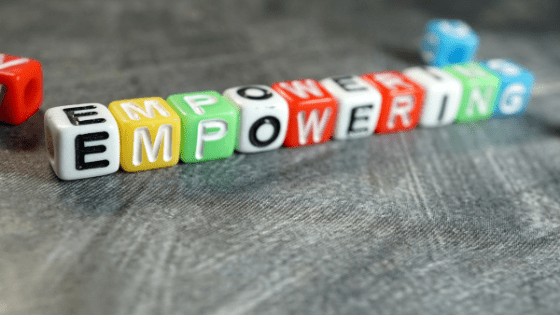Words To Describe A Community (With Definitions)
A community is a group of people who share something in common – whether it’s common interests, values, norms, beliefs, life stages or experiences.
It can refer to a physical place where people live or gather, or it can be an online space where members interact virtually.
The sense of belonging to a community is important as it provides individuals with support and social interaction. Communities come in all shapes and sizes, from small, informal groups to large, highly organized networks.
In any given community, individuals can be connected by a shared language, culture, religion or lifestyle. Other common characteristics of communities include mutual respect for each other’s individual rights, open communication, and collaboration among members. Additionally, communities may also have shared resources that can be used to better the lives of its members.
What Makes a Good Community?
A good community is one that values acceptance, respect, and understanding among all individuals.
No matter the differences in beliefs, backgrounds, or experiences, a good community will strive to embrace these differences with acceptance and understanding.
Words To Describe Community
Below are just some of the words that describe a thriving, vibrant community.
When everyone comes together as one, amazing things can be created and achieved. With kindness, respect, collaboration, and commitment to growth, we can create positive change in our communities:
Belonging: the feeling of being part of something larger; feeling accepted and supported by those around you.
Collaboration: working together to achieve a common goal; combining minds and talents in order to create something greater than the sum of its parts.
Commitment: dedicating time and energy towards making positive changes in the community; having an unwavering dedication to collaboration and progress.
Compassion: feeling for and understanding another’s suffering; providing support, comfort and care.
Cooperation: working together with a common purpose; being willing to compromise for the benefit of all.
Cooperative: working together for the common good; thinking of the whole community, not just individual interests.
Diversity: the presence of different types of people in one place; recognizing and celebrating the differences among us.
Empathy: the ability to understand and share the feelings of another person or group.
Empowerment: fostering self-confidence in individuals; believing that everyone can make a difference.
Engagement: actively participating in the life of the community; getting involved in activities, events, and initiatives.
Equality: treating everyone as equals, regardless of race, gender, religion, or any other factor; recognizing the inherent value of all individuals.
Family-orientated: fostering a sense of belonging; bringing people closer together.
Friendship: developing close, meaningful relationships with other members of the community; forming bonds of trust and understanding.
Generosity: giving of oneself without expecting anything in return; sharing time, knowledge, and resources with others.
Gratitude: expressing appreciation for the people and things that have been given to us; recognizing what we have to be thankful for.
Growth: developing skills and learning new things; striving towards personal growth and development within the community.
Hope: believing that something good can come out of a challenging situation; looking towards the future with optimism.
Hopeful: believing that something good can come out of a challenging situation; looking towards the future with optimism.
Inclusion: the act of including all members of a group or community, regardless of differences.
Innovation: thinking outside the box; coming up with creative solutions to challenging problems.
Inspiration: motivating others by example; setting a positive example for others to follow.
Joy: feeling happy and content; celebrating successes, large or small, in a positive and meaningful way.
Kindness: caring for others and taking action to help them; treating people with understanding, respect, and love.
Leadership: setting a good example for others to follow; motivating and inspiring people with courage and passion.
Learning: staying curious and open-minded; expanding knowledge, skills, and understanding.
Passion: having deep enthusiasm for something; pursuing dreams and goals with vigor and determination.
Peace: living in harmony and free of violence or conflict; creating a safe, secure, and nurturing environment.
Respect: treating others with kindness and understanding; recognizing each person’s unique worth.
Service: performing acts of kindness for others without expecting anything in return; contributing to the betterment of the community.
Solidarity: a sense of unity and togetherness among members of a group or community, based on shared goals and values.
Support: providing encouragement, guidance, and assistance to someone in need.
Tight-knit: having strong and lasting relationships; feeling connected to a group or community.
Tolerance: accepting the differences between people; not judging others based on their beliefs or lifestyles.
Transparency: openness, honesty and willingness to share information with everyone in the community.
Trust: a belief that someone or something is reliable, good, honest and has integrity.
Unity: coming together as one; celebrating our differences as well as what we have in common.
Vibrant: lively, creative and full of energy; engaging with the community in an active way.
These are just some of the words that come to mind when describing a strong community. We must strive to create communities that embody these values if we hope to foster lasting relationships and positive progress.
For more inspiring words, check out:






